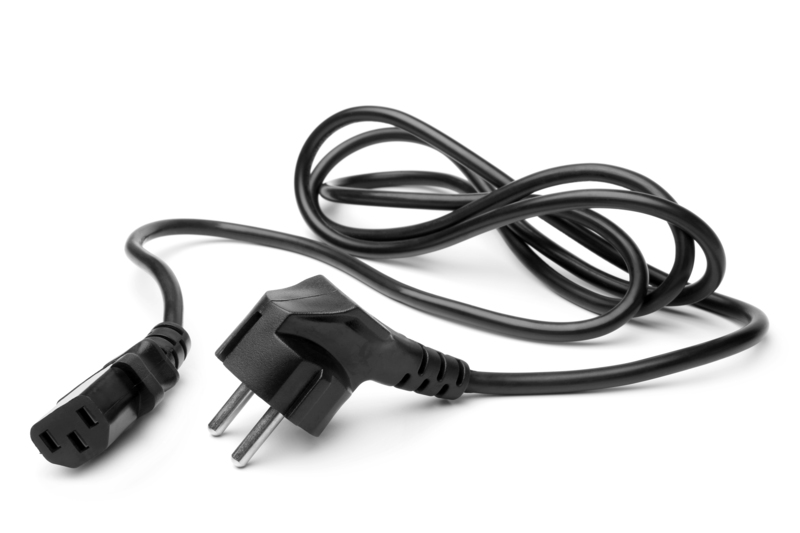Fridge Management 101
Posted on 19/11/2024
Fridge management might not sound like the most thrilling topic, but an organized refrigerator can make your kitchen routine smoother, reduce food waste, and even save you money. In this comprehensive guide, we'll explore the best practices for fridge organization, storage techniques to keep your food fresh longer, and tips for regular maintenance. Let's dive into Fridge Management 101!
Why Fridge Management is Important
Managing your fridge effectively is crucial for several reasons. It helps in reducing food spoilage, minimizing waste, and ensuring that your ingredients are always fresh when you need them. Additionally, a well-organized fridge saves time during meal preparation and aids in maintaining the appliance's efficiency.

Basic Principles of Fridge Organization
Understanding the different zones within your fridge is the foundation of effective fridge management. Different areas of the fridge have varying temperatures and humidity levels, making them suitable for different types of food. Here's a quick breakdown:
- Top Shelf: Ideal for ready-to-eat foods like leftovers, drinks, and ready-made meals.
- Middle Shelf: Best for dairy products, eggs, and deli items.
- Bottom Shelf: This is the coldest part of the fridge, perfect for storing raw meat, poultry, and seafood.
- Crisper Drawers: Designed for fruits and vegetables, usually with adjustable humidity settings to keep produce fresh.
- Fridge Door: This is the warmest part of the fridge, suitable for condiments, sauces, and other items with longer shelf lives.
Smart Storage Tips
For effective fridge management, use these smart storage tips:
- Label and Date Items: Ensure you label and date your leftovers and opened items to keep track of freshness.
- Use Clear Containers: Opt for transparent storage containers so you can easily see what's inside.
- Avoid Overcrowding: Leave space between items to allow for proper air circulation, which aids in cooling efficiency.
- First In, First Out Rule (FIFO): Rotate older items to the front and place newer items at the back to ensure nothing goes to waste.
Fridge Maintenance
Maintaining your fridge is just as important as organizing it. Keep your fridge in top shape with these maintenance tips:
- Regular Cleaning: Wipe down shelves and drawers regularly to prevent build-up of grime and spills.
- Check Temperature Settings: Ensure the fridge is set between 37-40?F (3-4?C) and the freezer at 0?F (-18?C).
- Defrost the Freezer: Periodically defrost the freezer to remove ice build-up and improve efficiency.
- Inspect Door Seals: Check the rubber door seals for wear and tear and replace them if necessary to prevent cold air from escaping.
Fridge Management Pros and Cons
Like any practice, fridge management has its advantages and disadvantages. Here's a quick glance:
Pros
- Reduces food waste.
- Keeps food fresher for longer.
- Makes meal preparation easier.
- Improves energy efficiency of the appliance.
- Saves money on groceries.
Cons
- Requires regular effort and discipline.
- Initial time investment to organize.
- Potential need for additional storage containers and labels.
Fridge Management Tips
Here are some additional tips to take your fridge management skills to the next level:
- Invest in a Fridge Thermometer: This ensures your appliance is maintaining the correct temperature.
- Use Baking Soda: Place an open box of baking soda in your fridge to neutralize odors.
- Plan Weekly Reviews: Set aside time each week to check expiry dates, reorganize items, and create a shopping list based on what's needed.

Key Takeaways
- Understand the different zones within your fridge to store items correctly.
- Use smart storage techniques like labeling and avoiding overcrowding.
- Regular maintenance is vital for the efficiency and longevity of your appliance.
- Adopt a FIFO system to minimize food waste and maximize freshness.
Conclusion
Fridge management is more than just stuffing groceries wherever they fit. It's about creating an organized, efficient system that saves you time, money, and reduces waste. By understanding the different zones, using smart storage solutions, and maintaining your appliance, you can ensure your refrigerator works optimally. Remember, the key to effective fridge management lies in consistency and a little bit of effort. Happy organizing!
Latest Posts
Time Estimate for Moving House
Career Shifts: Finding Balance Between Work and Home
Tips for Moving a Computer Securely
House moves and hare care: Preparing your rabbit for the journey







